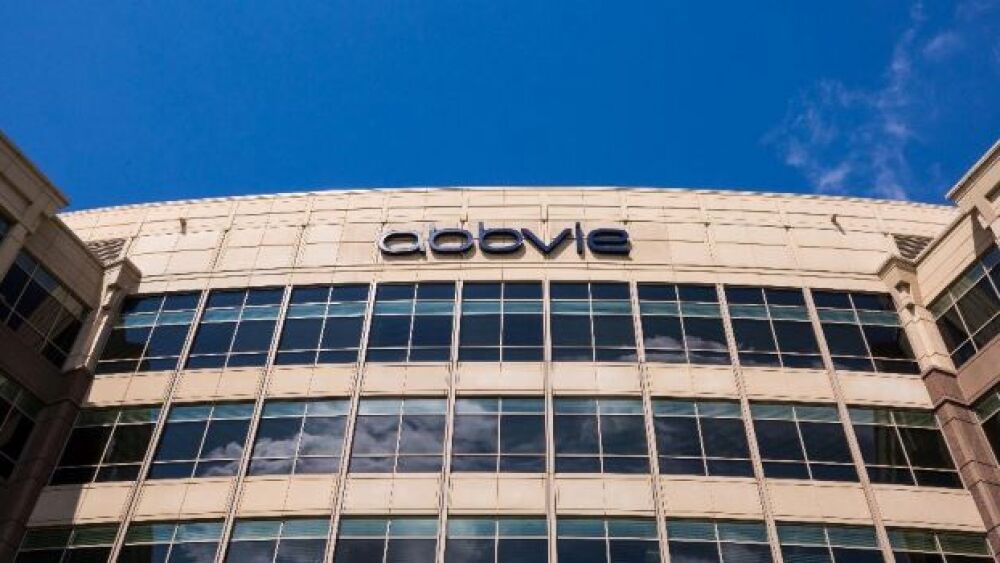A Senate Finance Committee report shows the majority of AbbVie’s income is taxed through foreign subsidiaries, allowing the company to pay less than half the U.S. corporate tax rate.
Courtesy of AbbVie, Inc.
One year after the Senate Finance Committee, helmed by Sen. Ron Wyden, launched an investigation into AbbVie’s taxing practices, a report has been released that shows the majority of the Illinois-based company’s income is taxed through foreign subsidiaries.
The report, published Thursday in the Wall Street Journal, shows that AbbVie, among other companies, used offshore havens to shield most of its earnings from U.S. taxes. Wyden, a Democrat from Oregon, has been highly critical of the 2017 changes to the corporate tax structure and the subsequent loopholes that have allowed AbbVie and other companies to avoid paying the corporate rate of 21%. Last year, when Wyden and the committee launched the investigation, the senator noted that AbbVie’s tax rate was 8.7% in 2018, 8.6% in 2019 and 11.2% in 2020.
The Oregon senator said AbbVie has been able to achieve these low rates by using offshore loopholes and reporting net income outside of the U.S. By shifting profits offshore and reporting losses in the U.S., AbbVie avoids paying higher tax rates.
A Puerto Rico Loophole
AbbVie’s primary revenue driver is Humira, which, year after year, has delivered $20 billion and more into the company coffers. However, the Senate Finance Committee report shows that in 2020, over 75% of AbbVie’s sales were made to American consumers, yet only 1% of AbbVie’s income was reported in the United States for tax purposes.
The new report specifically hones in on AbbVie and notes that AbbVie Biotechnology Ltd., a Bermuda-based AbbVie subsidiary with no employees or significant operations in Bermuda, owns the U.S. intellectual property rights for Humira, WSJ reported. Additionally, the bulk of Humira is manufactured in Puerto Rico. Although that island nation is a U.S. territory, Puerto Rico is considered foreign under U.S. tax laws, according to WSJ.
In April, when an interim draft of the Senate report was released, the committee noted that under the 2017 tax law passed by the Trump administration, AbbVie has paid less than half of the U.S. domestic tax rate due to its use of offshore subsidiaries.
Geographic Sales and Taxable Income Don’t Jive
In its analysis of the report, WSJ said from 2019 through 2021, AbbVie posted $28.8 billion in taxable income, most of which came from foreign subsidiaries. Foreign earnings are taxed at a minimum of 10.5%, well below the 21% U.S. corporate tax rate. In 2020, the report shows that 99% of AbbVie’s taxable income was reported by offshore subsidiaries. Even though three-fourths of its sales are made in the U.S., only 1% of the company’s taxable income was subject to the U.S. corporate income tax rate.
“A multinational pharmaceutical corporation with annual sales of over $50 billion in annual sales paid a lower tax rate than a postal service worker or a preschool teacher. It is unacceptable that this Republican-led giveaway has only created more loopholes for big pharma to shift profits offshore,” the report stated.
As BioSpace reported last year when Wyden launched his probe, prior to the passage of the 2017 tax law, AbbVie paid effective tax rates of 20% in 2016 and 19% in 2017.
“Despite the United States market being the source of most of AbbVie’s revenues and richest price premiums, it appears that the company has consistently reported net losses in the United States while reporting substantial foreign profits,” Wyden said at the time.
Abbott, BMS and Merck Also Under Fire
AbbVie isn’t the only target of Wyden’s probe. Abbott Laboratories, Bristol-Myers Squibb and Merck are also facing the committee’s scrutiny.
WSJ said the report will likely be used to bolster a push for a global 15% minimum tax that will be imposed in each country where a company operates.





